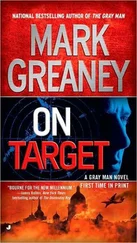There was a half-hour of back and forth after this, discussions of the tenor and the tone of the sanctions. Finally President Ryan was sold on the fact this was a necessary step. He nodded and said, “Okay. You almost never hear me say this, but I agree the United Nations has an important role to play here. The U.S. and Europe already sanction our banks against working with the North Koreans. But the banks we have identified as being involved in this are all in countries not saddled by their own domestic sanctions against North Korea.”
Ambassador Rush said, “We need wording along the lines of a prohibition on commerce and banking . . . restrictions to third-country persons, banks, and other commercial entities from facilitating trade with North Korea. We’ll have to specify the thirty-eight accounts we’ve identified, all the go-betweens, all the countries involved.”
Ryan agreed. “That’s right. We have to shut down North Korea’s access to hard currency. The best way in the short term to do that is to get a UN resolution sanctioning the banks abroad they are working with now.”
The UN ambassador said, “If we, as a member of the UN Security Council, push for these new sanctions, the first step that will happen will be in the Security Council Sanctions Committee. They will have ten days to hold a rules vote to see if the measures requested meet the requirements of UN economic sanctions. This is a procedural vote, and it shouldn’t be a major problem, but it is a definite hurdle. There is a lot of arcane wording in the charter, and the UN officials in the Sanctions Committee must themselves decide if the request is even valid.”
Ryan said, “We can put pressure on the governments of the delegates.”
Ambassador Rush shook her head. “Won’t work. In the sanctions vote, sure, the ambassadors will vote in the interests of their own nations. But in this rules vote, the voters are employees of the UN. Simple bureaucrats. I’m not saying they are untouchable, but they are international law experts, and they pride themselves on reading the charter and ruling accordingly.”
Ryan nodded. “Okay. Get started on drafting the sanctions immediately. I want something to sign as soon as possible so we can get the ball rolling. Every day North Korea has all this cash in all these bank accounts in all these offshore banks is another day closer to their acquisition of an ICBM.”
“Mr. President,” Adler said. “I want you to be perfectly clear on one thing. When you go forward with this push to get another round of sanctions passed, you will be outnumbered. There are a lot of countries, and a lot of very powerful companies who are aware that North Korea has potential in the rare earth mineral sector. The big technology firms want electromagnets for their computers, for example, and the nations who get tax dollars from these firms—the French and the Germans and the Japanese and the Taiwanese, for example—they will all be under a lot of pressure to kill these sanctions.”
Ryan chuckled. “I’ve been outnumbered before. Hell, I’ve spent the last hour and a half staring back at you guys arguing this over.”
The room broke into laughter.
Adler smiled but stayed on point. “Diplomatically, politically, even ethically, we are going to look pretty awful if word gets out we are trying to inhibit an industry that has nothing to do with either weapons or human rights abuses. We will basically be saying to the world that we want to continue to starve a population of twenty-five million people in order to protect ourselves.”
Ryan said, “You know that’s bullshit. Nobody in North Korea who is starving now is going to get a bucket of Kentucky Fried Chicken when the government mineral mine starts producing.”
Arnie followed Adler’s argument. “But that’s how it will play in the press if we push to cut off their access to manufactured goods from abroad. Politically, Mr. President, this is a dead end.”
Ryan heaved. “I don’t do politics anymore. I won my last election and I can’t run again. You remember that, don’t you?”
Van Damm rolled his eyes at the comment. “I’m not talking about you. Midterms are coming up, you’ve got a tenuous hold on Congress and a contested Senate. If you concentrate on issues that move the needle in our favor, you can write your own ticket for the last two years of your administration.
“The populace focuses on the shiny objects in front of them. The media is talking about domestic issues first, then the Russia–Ukraine problem, and lastly the conflagration in the Middle East. North Korea’s craziness isn’t even a blip on the radar to these people anymore, even with the missile test and the interdiction of the rocket tubes from France. That was barely a one-news-cycle story. The country doesn’t care.”
“It’s not my job to just focus on what’s trending, Arnie. You know that. Just because this problem isn’t as overt as some of the other world flash points, it doesn’t mean I can just ignore it.”
“Fair enough,” Van Damm said. “But be warned. You won’t have a lot of friends on this issue.”
22
The Hendley Associates Gulfstream G550 flew overnight from Baltimore/Washington International Airport to Václav Havel Airport Prague. The aircraft had a range of well over 5,000 miles, so the 4,200-mile transoceanic flight was an easily makeable jaunt for the jet without any need to stop along the way to refuel.
On board the flight the needs of Jack Ryan, Dom Caruso, and Gavin Biery were attended to by Adara Sherman. She brought them drinks after takeoff, and the three passengers sat at the four-seat conference table in the center of the cabin so they could prep for the operation ahead.
The plan for the men during tonight’s flight over was to use the time to acquaint themselves with the area they would be operating in in Prague. Karel Skála lived in the Žižkov district of the city, far to the east of the tourist traps of the Old Town and Hradcany. It was a large area of apartment buildings, working-class neighborhoods, and municipal parks, and the men knew if they were going to run any kind of a surveillance package on their target there they would need to know the area without having to walk around with their nose in a map.
The service they were using on their laptops tonight to acquaint them with the eastern neighborhoods of Prague was state-of-the-art. Gavin had recently briefed the operators of The Campus about the new application from the National Geospatial-Intelligence Agency that now ran on their computers. It was called Map of the World, and it was an incredibly detailed interactive mapping service that could show the team virtually any place on earth, and also give them an easy interface through which they could pull up all data on the area known by the U.S. intelligence agency and the other members of the “Five Eyes,” the English-speaking countries who shared intelligence product with the United States. Map of the World contained millions of pieces of information culled from open sources as well as the intelligence organizations from the United States, the UK, Canada, Australia, and New Zealand.
They spent time testing Map of the World by researching their target’s apartment building. Through a few clicks they could see the façade, the parking area in the rear, photos of inner corridors, security camera angles and schematics, and even information on tenants of the building in the form of the computerized rental agreements kept on file by the property manager.
Map of the World was an incredible resource, like Google Earth on steroids, and Jack and Dom knew it would replace EagleView, the high-tech mapping program they had been using. EagleView was good, but it wasn’t going to tell you what time a particular trash bin on a particular street corner was emptied. Map of the World could do that—provided someone in the U.S. intelligence community had entered that bit of intel from any linked intelligence or open-source database.
Читать дальше












